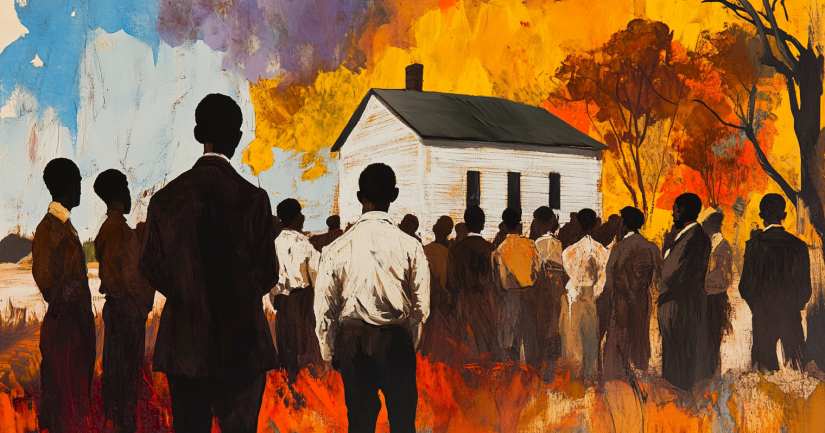
Test your insights on themes of courage and hope in Narrative Of The Life Of Frederick Douglass Chapter 8 Quiz. The Narrative Of The Life Of Frederick Douglass Chapter 8 Quiz challenges your understanding of a pivotal moment in Douglass’s autobiography. This chapter reveals how enslaved people were treated as property rather than as human beings. After Captain Anthony’s death, Douglass faces an estate division that disregards his existence as a person. His descriptions expose the cruelty of a system that measured people by financial value rather than humanity.
Understanding this chapter is essential for recognizing key themes such as dehumanization, power, and injustice. Douglass describes how enslaved individuals were appraised, separated, and distributed with no regard for family ties. The lack of control over their fates reinforces the psychological and emotional trauma caused by slavery. His firsthand account not only reflects personal suffering but also serves as a powerful critique of an inhumane system.
Douglass’s journey takes another compelling turn in Chapter 9—continue exploring his story with the Narrative Of The Life Of Frederick Douglass Chapter 9 Quiz. If you need to recall what led to this moment, take a step back with the Narrative Of The Life Of Frederick Douglass Chapter 7 Quiz. And when you’re ready to challenge yourself on the entire book, test your knowledge with the Narrative of the Life of Frederick Douglass Full Book Quiz.
Begin Your Narrative Of The Life Of Frederick Douglass Chapter 08 Quiz Journey
The Dehumanization of Enslaved Individuals
Douglass vividly describes the estate division process. Enslaved people were not considered family members but financial assets. This moment highlights how slavery stripped individuals of their identity, autonomy, and dignity. He details the forced separations that routinely destroyed bonds between loved ones. The chapter makes it clear that enslaved individuals had no legal protection.
The Legal System and Power Structures
The inheritance process emphasizes the economic motivations behind slavery. Laws protected enslavers, ensuring their wealth remained intact. Douglass’s experience reinforces how legal structures upheld injustice rather than fairness. His factual descriptions leave no room for doubt—slavery operated as a system built on profit, not morality.
Rhetorical Strategies and Literary Techniques
Douglass employs powerful rhetorical strategies to strengthen his argument. He uses emotional appeals to make the reader feel the pain of forced separation. His precise and factual tone prevents any dismissal of his experiences. Imagery and contrast expose the hypocrisy of a society that claimed to value freedom while denying it to so many.
Tips for Excelling in Narrative Of The Life Of Frederick Douglass Chapter 08 Quiz
To master this quiz, focus on:
- Identifying key themes such as dehumanization, forced separation, and legal injustice.
- Analyzing how Douglass’s rhetorical techniques strengthen his abolitionist message.
- Understanding the historical significance of the estate division.
- Recognizing how Douglass critiques the legal and economic structures of slavery.
Are You Ready to Test Your Knowledge?
The Narrative Of The Life Of Frederick Douglass Chapter 08 Quiz will challenge your ability to interpret the injustices of slavery, analyze Douglass’s rhetorical strategies, and recognize the lasting impact of his work. If you can explain how this chapter illustrates the brutality of enslavement, the failures of the legal system, and the power of Douglass’s words, you are well-prepared for this quiz.
Take the Narrative Of The Life Of Frederick Douglass Chapter 8 Quiz now and see how well you understand this pivotal chapter in Douglass’s powerful autobiography!
Test your knowledge with: Narrative of the Life of Frederick Douglass Quizzes!
What Happened – Narrative Of The Life Of Frederick Douglass Chapter 8
Douglass continued to live in Baltimore. These experiences made him more determined to seek freedom. Douglass reflected on the unfairness and cruelty of slavery.
Narrative Of The Life Of Frederick Douglass Chapter 8 – Quotes
- “Freedom now appeared, to disappear no more forever.” – Frederick Douglass, ‘Reflecting on the inexorable pull of the hope for freedom despite the oppressive conditions he continues to face.’
Narrative Of The Life Of Frederick Douglass Chapter 8 – FAQ
Chapter 8 primarily addresses the aftermath of Douglass’s master’s death and the resulting division of property, which includes the enslaved people. It highlights the dehumanizing effects of slavery and the emotional turmoil experienced by Douglass and others as they are treated as mere assets.
The valuation and division of enslaved individuals among heirs serve as a stark reminder of the lack of autonomy and humanity afforded to them, deepening Douglass’s resolve to seek freedom.
Chapter 8 is pivotal in showcasing the inhumanity and instability of slave life, reinforcing Douglass’s growing awareness of his condition. It underscores the systemic cruelty of slavery and acts as a catalyst for Douglass’s determination to escape, shaping his journey towards emancipation.
Douglass employs vivid imagery, emotional appeals, and stark contrasts to convey the gravity of his experiences. His use of detailed descriptions and personal reflections draws readers into the harsh realities of slavery, effectively highlighting its moral injustices and the deep yearning for freedom.
